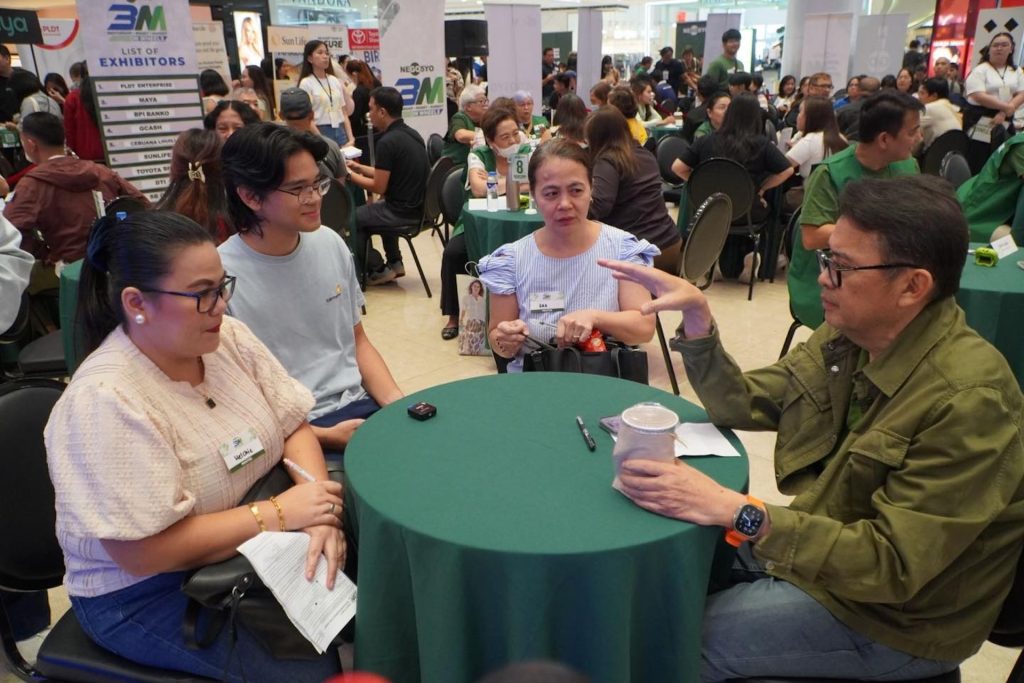
A Fair Fight for Our Entrepreneurs
September 1, 2025
Good Market Scents
September 15, 2025
Leveling Up, Scaling Up
This weekend, we will once again put the spotlight on digital technology and the part it plays in growing the Philippine MSME sector. The Online Selling Summit at the Ayala Malls Manila Bay in Parañaque City this Sept. 13 is the continuing iteration of our efforts to encourage our small entrepreneurs to use digital technology, adapting as the technology and the business landscape evolve.
Go Negosyo started this initiative even before the COVID-19 pandemic which, as you will recall, upended the way we lived and how we do business. We held the SIGN UP! Summit back in 2019 as part of our work with the Angat Lahat sa Digital Alliance, a group of digital platforms working within different industries and promoting digitalization among MSMEs.
To say that the idea of connecting MSMEs with digital technology was prescient is an understatement, considering how, a few months after we held the SIGN UP! Summit, COVID-19 happened and the pandemic lockdowns accelerated things faster than we imagined. And now with the endless possibilities of artificial intelligence (AI), we really have to move at a faster clip.
The adoption of fintech and the use of social media have become so pervasive that it has moved us to reach as many MSMEs as we can with the Online Selling Summit. Here, we will have informative panel discussions, one-on-one business mentoring, booths where attendees can connect with online growth partners and learn from fellow entrepreneurs how best to use digital technology to grow their businesses.
Let’s face it: competition will always be there for Filipino MSMES, so we have to help them succeed and prepare them for the future. Our neighbors in ASEAN are betting big on digital technologies, and their initiatives are expected to span everything from the smallest businesses to the largest corporations. The Philippine government knows this, and that’s why the President never fails to mention the building of our digital infrastructure as one of the priorities of his administration.
Our part as advocates for entrepreneurship is to do what we can to upskill and upscale MSMEs. They are adapting and adopting, and we have seen how many were able to grow using digital technology. Yes, it’s happening, but not with everybody.
MSMEs don’t adapt and adopt at the same pace. The small and micro enterprises especially, do so slowly and are often confined to using digital tech for administrative and marketing purposes. Experimenting entails substantial investments on their part, but their limited resources keep them from doing so. The gap increases as the tech becomes even more sophisticated.
Adaptation also depends on the sector and how crucial tech is for the business. AI has helped creatives, but less so those in micro retail; e-commerce solutions and cloud storage, on the other hand, are more useful in retail.
Mentorship, then, becomes even more important in digital adoption. Without a mentor, our small entrepreneurs can get lost in the jungle of vendors and apps and solutions out there. These small businesses can’t afford to take risky investments in tech, so they often rely on outsourced solutions such as those we now find them using with frequency, like the mainstream fintech apps for administrative chores, social media platforms for marketing and e-commerce sites for transactions and fulfillment. There is so much more out there that they can explore, couched in complicated names like enterprise resource planning solutions, cloud computing and yes, artificial intelligence. Being a content creator or influencer as a means to market your business is now mainstream; the next step is to level up our use of digital technologies.
Even with our prosperous neighbors, many MSEs still face barriers in accessing cross-border markets and digital tools. Fortunately, there are solutions, such as improved cooperation, the creation of frameworks for digital governance as well as for talent exchange to cultivate creativity and the creation of standards for the use of AI.
These are exciting times, not just for social media-savvy Filipinos, but in the whole of the region as well, as we prepare to use digital technology to reach our goals of regional economic cooperation.
Digital infrastructure, sound policies and the removal of barriers can encourage the uptake of digital technology among MSMEs. The pandemic catalyzed its use among businesses as operations had to be moved online. It served them well, and they discovered new ways to connect to markets and suppliers. For many, the gains were clearly demonstrated and felt. I think it is important to continue proving to MSMEs that digital technology can help them in ways beyond product and service promotion. I have heard how, in agriculture, weather forecasting technology, coupled with AI, helped small farmers on when and where to plant what crops so that they optimize both land, labor and inputs.
Among the tools available to entrepreneurs today, digital technology stands out as a transformative force for MSMEs. It has dismantled barriers, enabling MSMEs to access broader markets and valuable mentorship, ultimately facilitating their growth. As the government invests in vital digital infrastructure, we are committed to ensuring that our MSMEs are fully prepared to thrive in a digital future.
At the same time, we have to be conscious of how the digital transformation can further widen the gap between those who can adopt and those who, for various reasons, cannot. Digital infrastructure is one of those barriers, and I am heartened that building and strengthening it is one of the priorities of this administration.
Mentorship can make a big difference. Easing people into accepting and adopting digital solutions that go beyond using social media and into adopting fintech solutions. For this, we must help entrepreneurs appreciate and trust digital technology.
Originally Published in Philippine Star


2/F RFM Corporate Center, Pioneer cor. Sheridan Sts. Mandaluyong City, Metro Manila, Philippines

